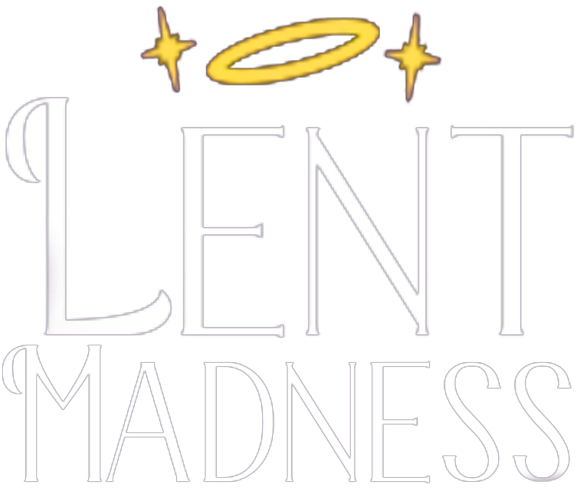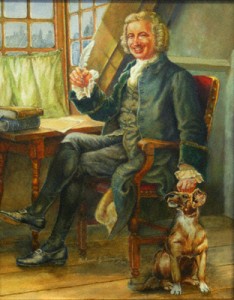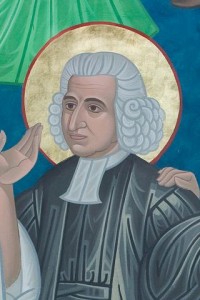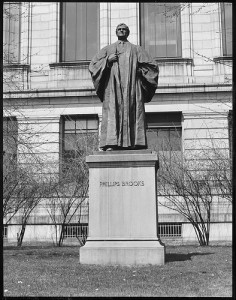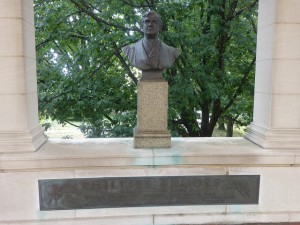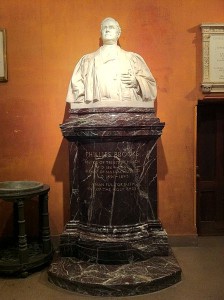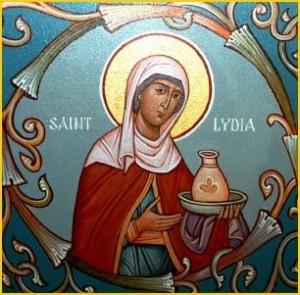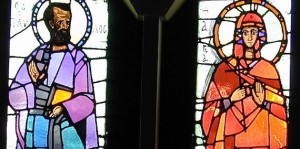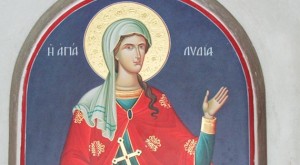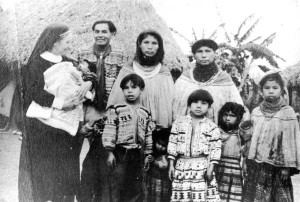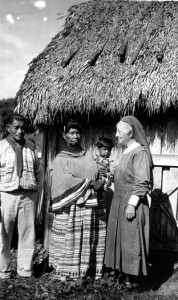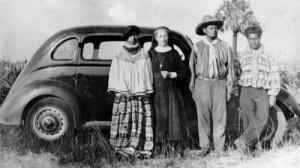We're getting closer, friends. In less than 24 hours we'll know who will be competing against Harriet Bedell for the Golden Halo. Yes, you heard that correctly, Harriet Bedell! Did anyone who filled out a bracket have Harriet competing in the championship round? Anybody? Harriet capped off a stunning Cinderella-like romp through Lent Madness 2014 by defeating Lydia yesterday 54% to 46% and will vie for the Golden Halo on Spy Wednesday with either Charles Wesley or Phillips Brooks.
But first, Charles and Phillips stare one another down in this battle of wordsmiths. Hymn writer and preacher. Though, to be fair, Wesley preached a bunch of sermons and Brooks wrote some hymns. And many generations have been inspired by their passion and creativity.
To make it this far, Charles Wesley defeated John Wesley, Thomas Merton, and Anna Cooper while Phillips Brooks turned away Simeon, Catherine of Siena, and Julia Chester Emery.
Oh, and congratulations to the Lent Madness Faithful for helping us achieve our goal of 10,000 likes on Facebook! We had great faith in you and the milestone was tripped at 10:18 pm Eastern Standard Time by a Canadian (of all things) proving that Lent Madness is indeed a global phenomenon. Or at least that Maple Anglican is a lot more influential than we thought.
After watching Tim and Scott's last Lenten edition of the award winning (well, not yet but we're optimistic and/or deluded) Monday Madness, let's see what the Archbishops have to say about today's match-up:
Charles Wesley
The other day, I asked a friend what I should say in order to convince you, dear reader, to cast your vote for Charles Wesley in today’s Lent Madness match-up. I was given a definite and absolute answer: “it’s all about the hymns!”
In one sense, of course the case for Charles Wesley centers on his 6,000+ hymns. For me, those hymns have been present at some of the most dear and cherished moments of my life –- I’ve attended weddings and funerals and sung Love Divine, All Loves Excelling. I recall the Christmas Eve eucharists as child where I would be so excited to sing Hark! The Herald Angels Sing. Easter morning was never complete without Christ the Lord is Risen Today/Jesus Christ is Risen Today.
His hymns punctuate the seasons of the church’s year (as with Come Thou Long Expected Jesus and Lo! He
Comes with Clouds Descending), and they provide language to express our desire to offer our highest praises to God (O For a Thousand Tongues To Sing!). At times, they simply stand in awe and amazement at God’s incredible love for us (And Can it Be That I Should Gain?).
But in a larger sense, I like Charles Wesley for way more than writing my favorite hymns. Because for Wesley, the hymns -– magnificent as they are –- were but other tools in his toolbox –- yet another way of striving to reach every last person with the Good News of Jesus Christ. Charles Wesley wanted every last person on earth to have that same feeling of confidence and assurance in Jesus Christ’s love for them, just as he had experienced his own “strange palpitation of the heart” and assurance that Jesus loved him on that Pentecost Day in 1738.
It’s no secret that this mission of Charles Wesley often led him right up to the edge of trouble. With his brother, Charles received disapproval from church authorities when, casting aside long-standing practice, he went out into the fields to preach the gospel to people who otherwise never would have had an opportunity to step into a church. And preach he did –- to thousands upon thousands.
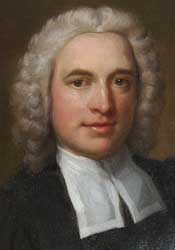 And the hymns…Charles Wesley’s many hymns were to him yet another means by which the gospel could be heard, that Jesus Christ could be known, and Jesus’ love could be felt by everyone. The famous 19th century American preacher Henry Ward Beecher once confessed his understanding of the power of those hymns to stir the heart when he said: “I would rather have written that hymn of Wesley's, Jesus, Lover of My Soul, than to have the fame of all the kings that ever sat on the earth.”
And the hymns…Charles Wesley’s many hymns were to him yet another means by which the gospel could be heard, that Jesus Christ could be known, and Jesus’ love could be felt by everyone. The famous 19th century American preacher Henry Ward Beecher once confessed his understanding of the power of those hymns to stir the heart when he said: “I would rather have written that hymn of Wesley's, Jesus, Lover of My Soul, than to have the fame of all the kings that ever sat on the earth.”
Charles Wesley was described by those who knew him as “a man made for friendship.” And for him, that’s what all those hymns, all those sermons, and all his work was all about: friendship with God and with neighbor.
That’s a commitment, and a ministry, that we can sing about today and every day, even as we, like Charles Wesley, cast our crowns before Jesus… lost in wonder, love, and praise.
-- David Sibley
Phillips Brooks
In the later decades of the 19th Century Phillips Brooks, rector of Trinity Church, Boston, was a national celebrity. It was a time when, unlike today, being widely-known, much less widely-respected and beloved as Brooks was, was no small feat.
Once clocked by a reporter at preaching more than 200 words per minute, Phillips Brooks must have been a been a magnetic, not to say breathless, preacher. We can’t know. Thomas Edison’s phonograph was not widely in use by Brooks’s death in 1893, but Martin Luther King, Jr.’s son has claimed that the cadence of Brooks’s sermons influenced his father’s preaching style. If we have Brooks to thank, in small part, for “I Have a Dream,” then we owe a great debt.
Upon reading his sermons more than 100 years later, it’s remarkable how overcome I am by a potent jolt of inspiration. I want to be a better person. I want to serve God with my best self and my whole heart. Sign me up!
Listen to the man:
The danger facing all of us -- let me say it again, for one feels it tremendously -- is not that we shall
make an absolute failure of life, nor that we shall fall into outright viciousness, nor that we shall be terribly unhappy, nor that we shall feel that life has no meaning at all -- not these things. The danger is that we may fail to perceive life's greatest meaning, fall short of its highest good, miss its deepest and most abiding happiness, be unable to render the most needed service, be unconscious of life ablaze with the light of the Presence of God -- and be content to have it so -- that is the danger. That some day we may wake up and find that always we have been busy with the husks and trappings of life -- and have really missed life itself. For life without God, to one who has known the richness and joy of life with Him, is unthinkable, impossible. That is what one prays one's friends may be spared -- satisfaction with a life that falls short of the best, that has in it no tingle and thrill which come from a friendship with the Father.
Brooks knew that it all comes down to love, as he shared so eloquently in a letter to young Helen Keller.
“There is one universal religion, Helen - the religion of Love. Love your Heavenly Father with your whole heart and soul, love every child of God as much as ever you can, and remember that the possibilities of good are greater than the possibilities of evil; and you have the key to Heaven.”
The words Brooks shares are not bound by time. “The hopes and fears of all the years are met in thee tonight.” Indeed, they are met in Christ every night of our lives. And his call to prayer to a God who knows no bounds sounds like it was written yesterday.
“Pray the largest prayers. You cannot think a prayer so large that God, in answering it, will not wish you had made it larger. Pray not for crutches but for wings.”
-- Heidi Shott
Vote!
[poll id="106"]
